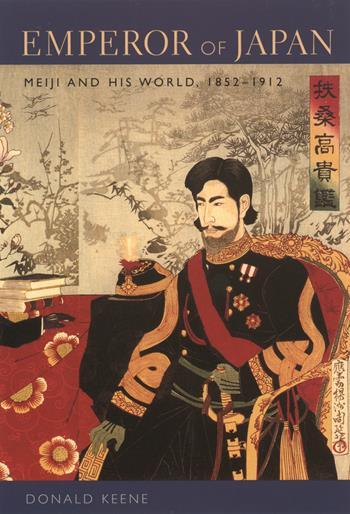
Emperor of Japan
Meiji and His World, 1852–1912
فرمت کتاب
ebook
تاریخ انتشار
2005
نویسنده
Chris Andersonنویسنده
Mark G. Ackermannنویسنده
Chris Andersonنویسنده
Mark G. Ackermannنویسنده
Donald Keeneشابک
9780231518116
کتاب های مرتبط
- اطلاعات
- نقد و بررسی
- دیدگاه کاربران
نقد و بررسی

March 18, 2002
Drawing extensively from the Meiji tennoki,
the official Japanese record of the emperor's life, noted Japan scholar and Columbia professor emeritus Keene fills this monumental work with a wealth of factual information—from the emperor's childhood illnesses and tours across the country to his political role in the state apparatus. This work is also, as the title suggests, an examination of Meiji's world, and Keene uses diaries and letters of the emperor's contemporaries, as well as secondary sources, to describe important events and people in Japan's transition to a modern nation-state. Keene is seeking the personality behind the historical figure, but since Meiji kept no diary and wrote almost no letters, it is difficult to determine his personal feelings about the historical events of the time. Keene does examine Meiji's poems and anecdotes from acquaintances in order to provide a rounder sketch of the man, but often, in the attempt to personalize him, Keene must resort to speculation about how the emperor "must have felt" at particular moments. Keene is obviously attracted by the subject of his study and often points out qualities in the man that he finds lacking in European monarchs of the same period (Meiji was more frugal and less arrogant, Keene notes, than the tsar, his enemy in the Russo-Japanese War). But in the end, Keene admits that "Meiji seems almost to repel attempts by a biographer to come closer" than the officially prepared chronicles allow. Perhaps, as one contemporary politician noted, "The emperor had almost no private side to him." Keene's achievement, then, is the enormous wealth of information that he makes available to the English reader. This book will undoubtedly be the most complete picture possible of a sovereign who remains as distant as a proper Confucian ruler should.

























دیدگاه کاربران